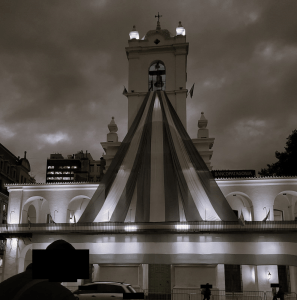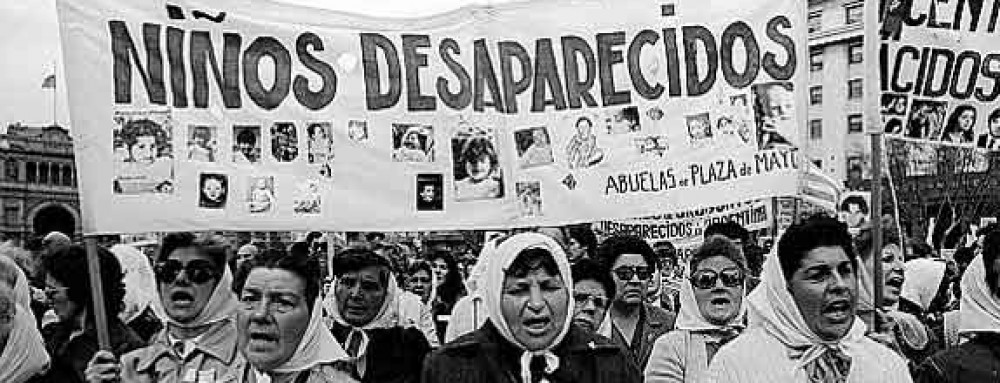Buenos Aires, Argentina

[I’m not posting this for credit; I just wanted to share with everyone else my thoughts. If you’re reading this, thanks for taking the time for looking.]
I wake up with dark red marks carved into my inner palms, carved by my fingernails as I clench my fists during my sleep. These days, I find myself at odds with the clock: no matter how many more hours of sleep I get, it feels as if I haven’t slept at all. I don’t really remember the dreams I’ve been having, but I get brief images of running, hiding, and loud noises. They aren’t exactly new — my fair share of run-ins with other fun things have brought me to similar bouts of restlessness.
Osvaldo helped reveal truths to me that were previously obscured by (what now seem like) the thinnest of barriers. All of the signs and explanations were there, but I think I unfortunately rely too heavily on the “it’s only true if someone else validates it” model — leaving me to moments like this if I’d like to do any big soul-searching without the help of our fungi-based tools. These times at the memory-sites, I’ve found, are compartmentalized in this part of my mind that’s recently formed. I think it truly began when I first visited an ICE detention center in south Georgia — and has been more recently defined by my trip to New York City. What a radicalizing experience! The most prominent displays of wealth and luxury juxtaposed by the most poor people experiencing houselessness — not to say Atlanta is any different, but it’s the scale.
I find much of the same here. The crescent-shaped marks sting as I hold my toothbrush, pack my bag, and hook my silver around my neck as I get ready in the morning. Towering buildings, which easily mirror those on Fifth Avenue, condescend over “popular”, working-class neighborhoods. The universal news-stingers reflect skyrocketing inflation, parroted by the fascist taxi-drivers who unwittingly take us from one memory-site to another. The sound of drums and brass fill the pedestrian streets as green and yellow smoke rises over the crowd. Cold rain unforgivingly lets down over thousands gathered to bear witness to their political futures, while peddlers frantically put out their stocks of ponchos and umbrellas.
The sounds of the pipes and AC in this hotel take turns sounding like screams of pain and loud knocks at our door. Twice now, the little turn-timer on the microwave has gone off without cause as I’ve been alone in the dark. The window looks out to a family’s room; I can see and hear them in the mornings, worrying me as if they were in the room. To put it plainly: this place gives me the fucking creeps.
Buenos Aires has its own terrible beauty as any other major Latin American city would, but with its own flavor. Think Mexico City — built directly upon the ruinous city of Tenochtitlan, ransacked and violated by barbaric Spanish invaders. Hey, but at least there’s a public conception of “original” or “Indigenous” culture in Mexico City. Buenos Aires is a grand monument whose brilliance allures you to come closer and join: only when you’re close do you realize its made of bleached bones, not marble.
I don’t deny the beauty of this place in the slightest. In a continent renowned for its xenophobia, there is a vibrant and (partially) integrated community of immigrants who make this a badass place to be. We’ve been eating Korean, Vietnamese, Brazilian, and Peruvian food these nights. I really couldn’t ask for more, considering most of my nights in Cordoba were spent eating some version of a ham and cheese sandwich or pizza. Still sticking with ham and cheese, though.
I recall the conversation I had with Carlos, who was one of the musicians and poet who came to the asado during our last bits in Cordoba (specifically around Cerro Azul). This is a country, continent even, of millions with connections to land and her original peoples in some form or another. The difference is whether or not they make an effort to learn about these histories and realities, and to decolonize their minds. It is a lifelong process like anything else, but immensely important.
I have no intention to soapbox to my fellow “mestize” (mixed-race) Latin Americans about how they need to join me on this journey of decolonization, et cetera — because if they truly want to do it, they will. I don’t intend to bring someone in on this discourse, these spaces, these paths if they lack the basic respect for the essence of decolonization: that these lands are colonized, that our ancestors are still with us, that our siblings are still here, and that hope is not lost.
I have learned that there is nothing to be gained from trying to engage with those who make your identity a question — something ostensibly up for debate. They are the collaborators to our repressors, the devil’s advocates who will put you in danger for the sake of preserving the “marketplace of ideas”, the informants whose allegiances to the state come before whatever conception of humanity you two have. These are times for joy and for love and for gathering, but we do so in strength and in careful advisement. We have no choice but to prepare.
memento mori
